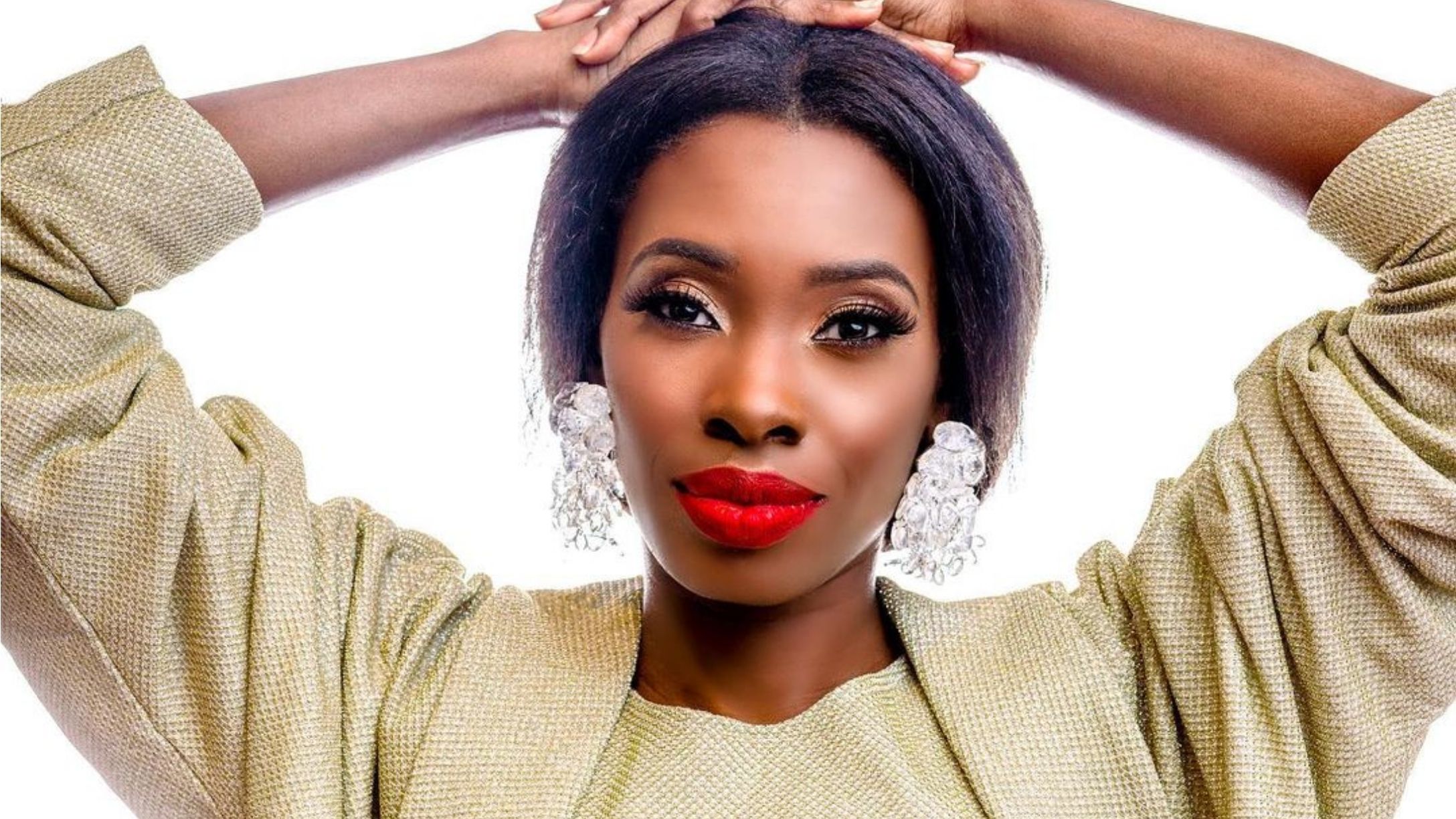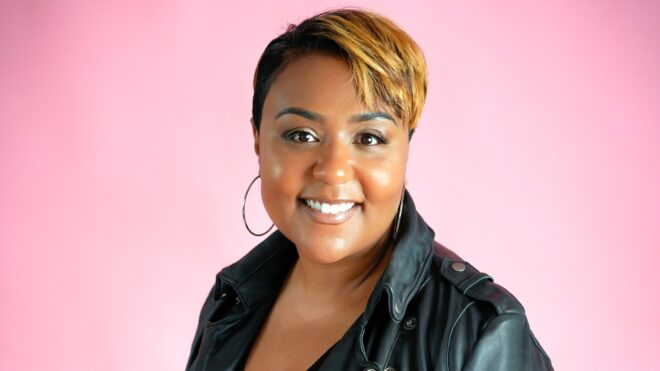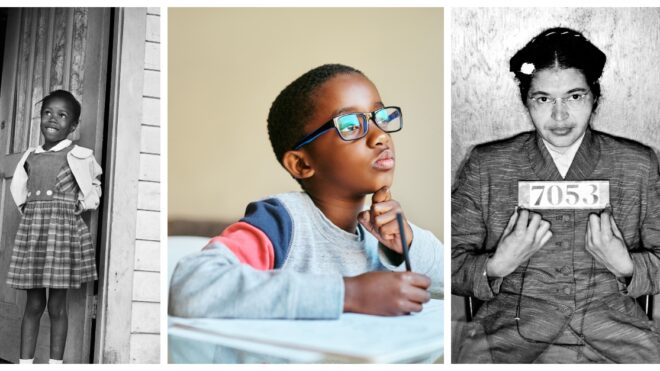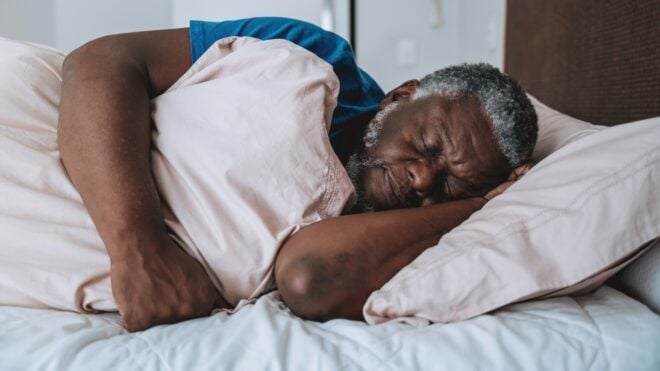
The bridal industry has been centered around white women for as long as it has existed. Common sense tells us that brides come in all shapes, sizes, and skin tones, but the industry hadn't shown recognition of that fact.
Enter Andrea Pitter, disrupting the bridal industry by creating her own bridal company, Pantora Bridal. As if that wasn't monumental enough, she also designed her own line of bridal dresses that cater to Black women's shapes and skin tones.
The Knot chatted with Andrea Pitter about her experiences when developing her business and her designs.
Andrea Pitter was just 20 years old when she started designing wedding dresses. Today, not only does she have a collection of breathtaking bridal gowns, but she's made her impact on the bridal industry in a major way. The journey there was full of ups and downs. As a Black woman, Andrea remembers comparisons made early in her career that diminished the work she was putting into carving out her own place.
"A lot of retailers were playing the comparison game like, 'Oh, you're the Black Vera Wang.' And I was like, 'I'm just Andrea. We don't have to turn me into someone else so it's more palatable for you,'" she told The Knot.
"Eventually I stopped going to [the New York] bridal market altogether because it wasn't a positive experience for me or for my business. We decided that we would keep the store going, and we would pump the brakes on finding retailers that would pick up our brand. We decided that the retailers who would work for us would seek us out."
Pantora Bridal opened its first showroom in 2013 and experienced gradual growth. "It was really hard. I've quit many times and come back the next day," Andrea laughed.
"When we opened the store in 2013, it was really just myself and maybe one other person and brides were coming in one at a time, based on referrals. And then it was one bride told 10 brides and all of a sudden we were this full-fledged bridal brand and bridal salon.
"We had to keep adjusting to the demand. So it started off as a 400-square-foot boutique and we opened up an extension store across the street, because it was the closest thing that had more space. Then we realized that it was not ideal for us to be bouncing back and forth from one space to the next. Then our first retailer picked us up, and we realized we were expanding fairly fast."
In the last three years alone, Pantora Bridal has moved to a 3,000-square-foot showroom on Nostrand Avenue in Brooklyn, New York, tripled the size of its team, and had Andrea's designs picked up by four retailers, including the iconic Kleinfeld Bridal. Pantora has certainly gotten more exposure in recent years, although Andrea notes that sometimes it's the kind of coverage that frustrates her.
"[W]hen Pantora does get recognition, it's often on a 'Black Designers' list. I think a lot of Black designers experience that. Our talent exists year-round, but when we get recognition it's only on 'Black Designers to Know' lists," she noted.
"But if we are talented, and you truly want to give us the recognition, then it should come at any point in time, not just when you want to specifically acknowledge Black talent."
"And that's been one of the hardest things, because I think I'm talented overall, not just a talented Black person."
At the heart of Pantora's mission is providing a safe space for Black brides and battling the bridal industry's lack of inclusivity. It's certainly making changes, but Andrea hopes for industry-wide change beyond her company's work.
"I think that Black women have such big spending power. The fact that we aren't acknowledging them in fashion does not make any sense. It just doesn't," she said.
"I would love for size charts to make sense for different body types. I would love to see designers and brands pay attention to skin tones. Pantora is not the first brand to create mesh that matches skin tones — and we would never claim to be — but we made a point of creating a line of mesh called Forgotten Skin Tones that addresses as many skin tones as possible, so Black women can get the illusion look that's trending everywhere. I would love to see other brands do that."
Andrea notes that sometimes even well-meaning brands end up with superficial forms of diversity and inclusion that don't actually make the differences that need to be made.
"I'd love for people to really understand what diversity looks like, because it's not just including Black women. It's also their thoughts, sentiments and culture. I think sometimes we think that diversity is legitimately just putting a Black face in the room. But what are the thoughts of that Black person? How does that represent the community? And I don't think any one Black person can represent everyone," Andrea reflected.
"I actually understand why everyone may not be as opinionated as I am, because when you speak so loudly about concerns and issues like this, it's very hard to make sure that people understand that you're not trying to be the Black delegate. I can just speak for people who are like me and who think like me, but I can't speak for every Black person. I can defend us and speak up as much as I can, but I can't speak for everyone."
The disparity can be seen in the bridal shopping experiences of women of color, particularly Black women, as opposed to their white counterparts. Andrea shared that many women whose bodies aren't the industry standard are shuffled off to plus sizes simply for wanting to show they're proud of their bodies.
"At Pantora we have questionnaires we give our brides when they come in and we try to understand what it is that they want to get out of their appointments. I've had too many brides come into our salon and say they've been told they're considered plus-size, and we're looking at them like, 'There's no way.' And it's because they have a booty," she shared.
"Then the dresses that they're being told are the best dresses for them are all A-line or the alterations suggested don't give that little pinch that shows off the booty. We want to show the curves! And it can feel like these ideas are somewhat frowned upon, or people are not necessarily taking the time to understand our body types or our values."
"It's also not always about the selection of dresses available. It's also about what's being suggested, and salespeople not being trained that there are lots of women with curves who want to show them off and appreciate them."
The representation really matters, and not for representation's sake.
"We're very willing to accept money from Black women, but we're not willing to accept the thoughts of Black women. Representation is important because I need to be able to see myself when I'm shopping, and I need to know that my voice is heard," she explained.
"I need to know that my money is going to a place that represents my values. Black women do, in fact, get married, despite what the media tells you. Black love is very prevalent, despite what the media tells you. So we need to show as much Black love, Black body acceptance and Black joy as possible."
At the heart of any business should be a desire to satisfy the consumer, but Andrea explains that hasn't been the case when it comes to the wedding industry. She urged companies that diversifying from within and from the top is just the first step.
"The first order of business is to go hire some Black people and not in a performative way. I've noticed over the past couple of months that a lot of brands have booked more Black models — but what does your core team look like? Because if it does not include Black women, all you're doing is putting a face out there, but you're not representing the values. Maybe a lot of foolishness would stop if we had different opinions being heard," she said.
"Historically, the wedding industry and the fashion industry are white, male-owned and -operated, but geared towards women. I just think that it's time to listen to the people who are dropping the coin. And I'm so happy that people are waking up and Black women are demanding better."
Andrea would also like to see that kind of diversity happen on the side of publications.
"I think it is time for larger publications that are historically white to acknowledge other talent. You said I've been very vocal about representation, and I have been," she said.
"I understand why some Black businesses 'whitewash' their businesses or step to the side, because they've been told it will make them more successful — I'm not even mad about it, because a lot of people told me to do that too."
"It's just not an option for me. Black women built my business, and I am not going to be quiet about it."
"I'm going to sing their praises because Pantora wouldn't exist without them and their continued support," she declared.
"I'm emotional about this. It's emotional for me because my business is about good intentions. We are rooted in good intentions — we are representing the underrepresented."







